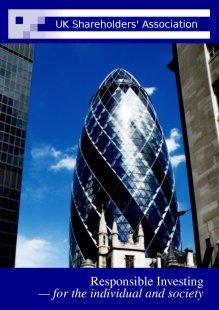This article is all about the distinction between theory and reality.
In March 2022, I wrote an article entitled 'Investors beware - you may be robbed'. This article was about Chrysalis Investments Limited, who paid their managers a performance fee of £112.1 million, 54% of which was paid in shares at 267p per share and the remaining 46% was paid in cash.
Prior to IFRS accounts, assets were valued at cost or market price and, if the latter, the difference between market price and cost was added to capital reserves. Under IFRS, theoretical gains in asset values are taken as profit in the Comprehensive Income Statement.
Had Chrysalis Investments only paid a fee on the profit made on the investments they had sold, the fee paid would have been in the region of £13 million.
After 30 September 2021 the share price of Chrysalis Investments started collapsing as the share prices of some of their quoted investments were falling by significant amounts. By January 2022 the price was down to 181p, a fall of over 32%.
On 11 July 2022 the managers of Chrysalis Investments issued an update:
“Today, the Company can report that Klarna Holdings AB has announced an $800 million funding round that values the company at $6.65 billion post new money. The round, which was larger than anticipated, was led by Sequoia Capital and has been undertaken at a valuation that represents a material discount to the Company’s current carrying value of the asset. As of 23 May 2022 the Company’s NAV stood at 212p. This funding round will reduce the NAV by 32.5p to 179.5p.
If converting theory (fair value) into reality (market prices) on a single investment reduces the value of the whole portfolio by 15%, what would be the effect of converting the whole portfolio to reality? Obviously investors now realise that NAVs based on IFRS accounts are purely theoretical and have no relationship to reality. The share price of 87p compared to the stated NAV of 179.5p, a 52% discount, demonstrates this.
The company stated that in its view the funding round undervalues Klarna and accordingly it has participated in the funding round by investing a further $8.7 million to ensure its holding has not been diluted. This is fair enough, because at least this additional investment is at market prices and not at some theoretical valuation.
Section 830 of the 2006 Companies Act states:
(1) Distribution to be made only out of profits available for that purpose;
(2) A company’s profit available for distribution are its accumulated realised profits, so far as not previously utilised by distribution or capitalisation, less its accumulated, realised losses, so far as not previously written off in a reduction or reorganisation of capital duly made.
Section 832 of this Act specifically covers Investment companies:
(1) An investment company may make a distribution out of its accumulated realised (my bold) revenue profits only if this exceeds its accumulated revenue losses.
The performance fee paid to the managers is unlikely to be deemed a distribution under the Companies Acts, but is it morally justified? What really is wrong, though, is that IFRS accounts are theoretical and unreliable. Chrysalis Investments quote their NAV as being 163.48p per share as at 22 August 2022, yet on 26 August, a few days later, these shares were trading at 75.9p, a discount of nearly 54%. Clearly the market does not have any confidence in the valuation of NAVs as computed by IFRS.

